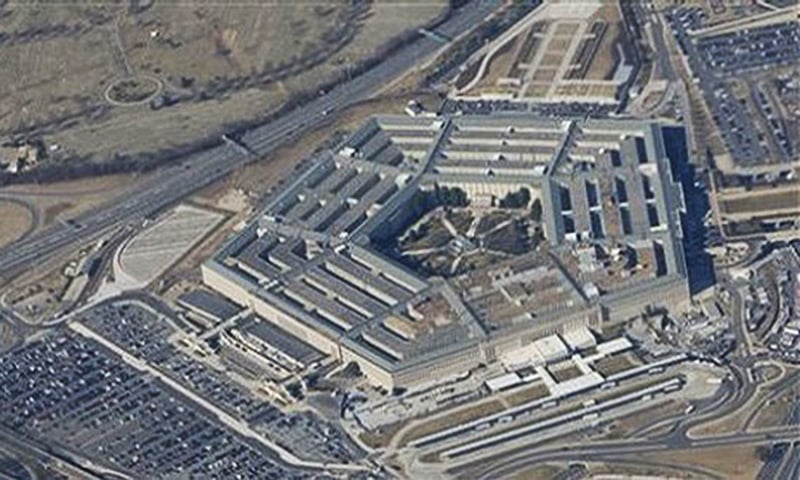WASHINGTON: The new band of rebel recruits was supposed to prove the United States (US) could train moderate Syrian fighters to defeat the jihadists in the war-ravaged nation.
But soon after returning to Syria, the American-backed fighters handed over their ammunition and other equipment to the local Al Qaeda affiliate, the Al-Nusra Front.
The Pentagon's startling acknowledgement last week that its latest trained rebels helped Al-Nusra — purportedly in return for safe passage — illustrates the complexities of the Syria conflict.
It also highlights America's dismal record of training locals in other countries.
The situation grew even murkier this week, with reports which alleged that Russia hit the Central Intelligence Agency (CIA)-backed rebels when it launched air strikes in Syria, instead of targeting the self-styled Islamic State (IS) group.
American special forces and the CIA have in recent decades backed foreign fighters across the world.
The results have hardly been stellar, experts say, and there's scant reason to think the current Syrian endeavour will fare better.
"The historical record of success and failure in this is spotty at best. Plenty of failures, hardly any successes," said Stephen Biddle, a professor at George Washington University who has written a draft paper on the effectiveness of such missions.
"It is very unlikely that the train-and-equip program is going to work."
The Obama administration in January unveiled the $500-million program to train vetted Syrians, with the rebels signing pledges to only fight IS jihadists.
Read: Congress gives Obama power to arm Syrian rebels
But the program got off to a disastrous start. In July, the first graduating group was attacked by Al-Nusra. One was reported killed, another captured.
The Pentagon isn't sure what happened to at least 18 others.
And on Thursday, Senator John McCain had alleged that Russian air strikes had hit CIA-trained rebels.
Unlike the Pentagon, the secretive agency doesn't talk about its Syria operations, but it reportedly has its own initiative — the results of which are not known.
'Has not worked'
The Pentagon this week acknowledged the rebel program was on partial hold, with no new recruits arriving to train in Turkey and Jordan, and even President Barack Obama said on Friday the effort was struggling.
"I'm the first one to acknowledge it has not worked the way it was supposed to," he said, noting rebels were reluctant to fight only IS.
Trainers were looking at trying to build on successes with some of the Kurdish community in the east of Syria, he added.
Pentagon spokesman Captain Jeff Davis said the Defence Department continues to "believe that we need a local Syrian force on the ground that we can work with."
Perhaps the best-known precedent of the US supporting a local group is the backing of Afghanistan's mujahideen to fight the Soviets in the 1980's.
In Iraq, America's decade-long mission to build the Iraqi army resulted in few successes, but also disaster when local forces collapsed as IS jihadists barrelled across the country last year.
Similarly, multibillion-dollar efforts to train Afghan forces have yielded an army still struggling to contain the Taliban, as seen when their forces this week seized Kunduz, since largely reclaimed.
"And US efforts to build the South Vietnamese military were famously unsuccessful from 1965-1975," he wrote.
Obama told The New Yorker last year he had asked the CIA to analyse successful examples of America financing and supplying arms to an insurgency.
"They couldn't come up with much," he said.
No good options
Given the Gordian knot that Syria has become, Anthony Cordesman of the Washington-based Centre for Strategic and International Studies (CSIS) still believes that the train-and-equip mission is actually one of America's few palatable options.
"Life doesn't always offer you good options in the middle of what's become one of the most divisive and destructive civil wars in modern history," Cordesman said.
Derek Chollet, former assistant secretary of defence for international security affairs and a senior advisor at the German Marshall Fund, said though the program was fraught with difficulties, America should continue with at least some version of it.
"Syria is going to be a problem for a long time," he said.
Loch Johnson, an intelligence expert and professor at the University of Georgia, was not optimistic.
"Given the inertia that one finds in the Pentagon, we'll blunder forward in continuing to try and put together the kind of army that can rise up against both Assad and ISIS, comprised of moderate pro-Western groups — if indeed any exist there — and it will again peter out and lead to virtually no success," Johnson warned.












































